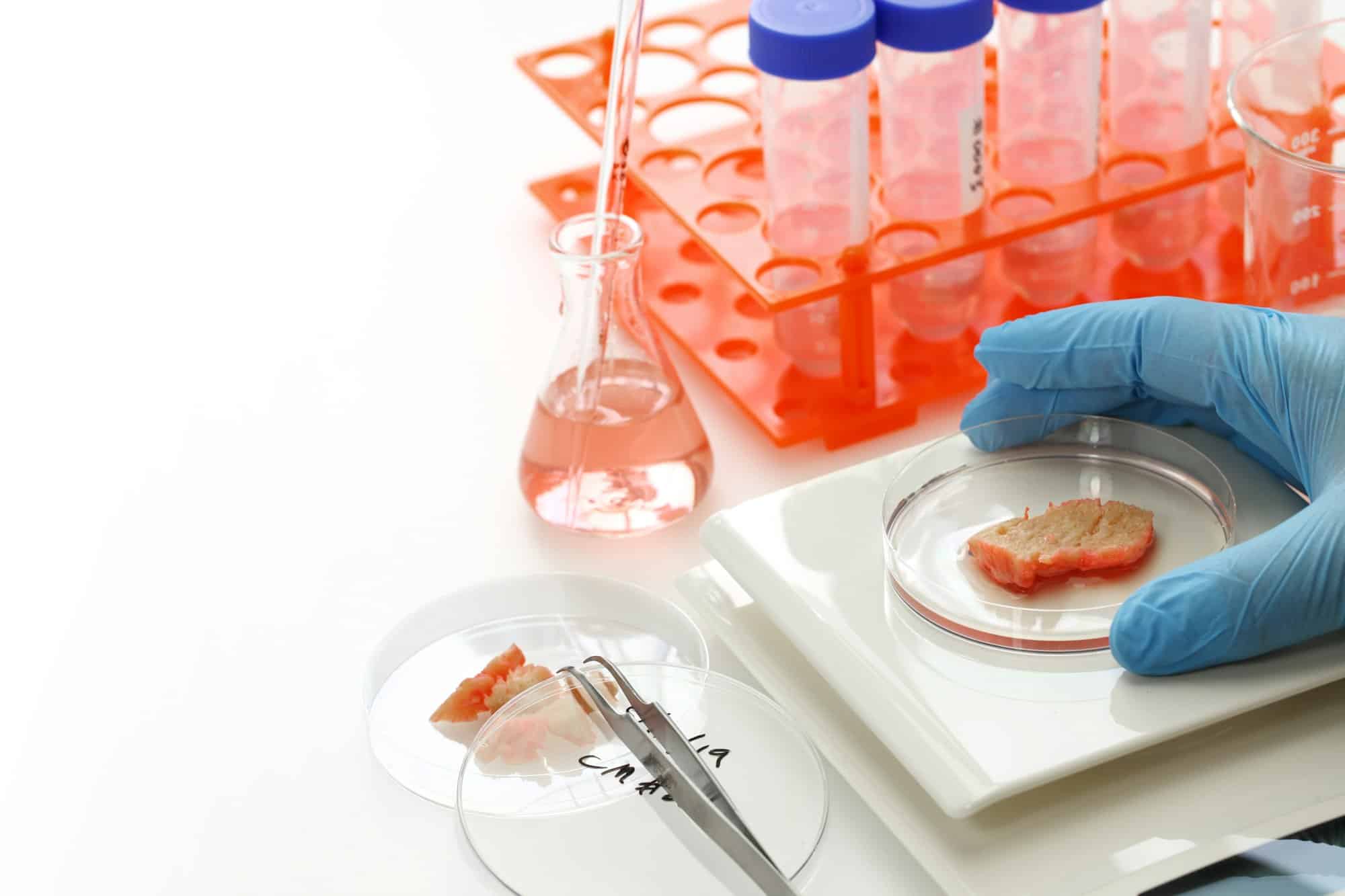What Are the Prospects for Lab-Grown Meat in the UK’s Culinary Scene?

With the current rise in conscious, sustainable, and ethical eating trends, a new player has stepped onto the UK’s culinary scene: lab-grown meat. This cultured, cell-based food is gaining traction, not only because of its potential environmental benefits, but also due to its ability to address animal welfare concerns, and its promise of feeding a hungry world without depleting natural resources. The question, however, remains: what are the prospects for lab-grown meat in the UK’s culinary scene?
The Technology Behind Cultured Meat
The term "lab-grown meat" may sound alien to some, but it is a concept that is gaining ground in today’s food science and technology landscape. This novel kind of meat is generated through cellular agriculture, a process that involves cultivating animal cells in a lab environment, rather than rearing animals for slaughter.
A voir aussi : Oktoberfest packages explained: what to expect in 2024?
Cell-based meat production takes a biopsy of animal muscle tissue and places it in a culture medium that mimics the animal’s body conditions, promoting cell growth. As the cells multiply, they eventually form muscle tissue, which is essentially meat. The end product is virtually identical to conventional meat in terms of taste, texture and nutritional profile, thus promising an authentic meat-eating experience without the associated environmental and ethical concerns.
The technology behind cultured meat breaks away from the conventional animal-based production systems, offering a radical new approach to meat production that could potentially revolutionize the food industry.
A découvrir également : How to Use Biophilic Design to Improve Mental Health in UK Workspaces?
Crossing the Chasm: Consumer Acceptance of Lab-Grown Meat
Despite the promise of lab-grown meat, its market acceptance is strongly dependant on consumers’ willingness to try and adopt this novel food. Fear of the unknown, coupled with potential sensory disparities and perceived unnaturalness, can act as barriers to consumer acceptance.
However, a shift in consumer attitudes towards food is underway. The growing awareness about the environmental impacts of conventional meat production, coupled with concerns about animal welfare, is driving consumers to seek out alternatives. Consumers are increasingly open to plant-based and cultured meat options, using these choices to reduce their environmental footprint and align with their ethical beliefs.
The market for lab-grown meat is there, as consumer interest in sustainable and ethical food choices continues to surge. To leverage this, producers must ensure that their products meet consumers’ sensory expectations while clearly communicating the benefits and safety of this new technology.
The Regulatory Landscape for Cultured Meat in the UK
Regulation plays a crucial role in the commercialization of lab-grown meat. Regulatory bodies must ensure the safety and quality of these new food products, while also overseeing their labelling and marketing.
In the UK, cultured meat falls under the remit of the Food Standards Agency (FSA), which has been proactive in preparing for this new technology. The FSA has established a regulatory framework for lab-grown meat which is science and risk-based, ensuring that these products meet the same safety and quality standards as conventional meat.
Cultivating clarity and trust around the regulatory process will be key for industry stakeholders and consumers alike. The regulatory landscape must provide assurances on food safety while also fostering innovation and growth in this burgeoning sector.
The Potential Impact on the UK’s Culinary Scene
The advent of lab-grown meat holds the potential to transform the UK’s culinary scene. It offers an alternative to traditional meat that is sustainable, ethical, and potentially more accessible. This could be a game-changer for restaurants, food services, and consumers who want to enjoy meat without the ethical and environmental drawbacks of traditional animal farming.
Moreover, lab-grown meat could stimulate a new wave of culinary creativity. Chefs will have a new ingredient at their disposal, opening up exciting possibilities for innovative dishes and culinary concepts.
The future of lab-grown meat in the UK’s culinary scene looks promising. As the technology matures and consumer acceptance grows, we will likely witness a paradigm shift in the way we produce and consume meat. From fine dining restaurants to home kitchens, lab-grown meat could soon become a familiar fixture on the UK’s culinary landscape.
The Future: Challenges and Opportunities
The journey towards widespread adoption of lab-grown meat is not without its challenges. Scaling up production to a commercial level, managing costs, securing regulatory approvals, and gaining consumer acceptance are significant hurdles that the industry needs to overcome.
Despite these hurdles, the prospects for lab-grown meat in the UK are promising. Advancements in technology, changing consumer attitudes, and supportive regulatory environments are propelling this industry forward.
Moreover, the environmental, ethical, and health benefits of cultured meat position it as a viable and attractive alternative to conventional animal-based meat. The unique positioning of cultured meat could enable it to carve out a significant niche in the UK’s food market, especially among consumers who are conscious about their food choices and their impact on the planet.
The future of lab-grown meat in the UK is certainly a fascinating space to watch. As this cutting-edge technology continues to evolve and mature, it holds the promise of ushering in a new era of sustainable, ethical, and innovative food production.
The Scalability and Cost of Lab-Grown Meat Production
One of the biggest hurdles faced by the fledgling lab-grown meat industry is scaling up production to meet potential demand. Currently, the production of cultured meat is a costly and time-consuming process. Companies working in this space are focused on refining the technology and processes involved in cellular agriculture, including sourcing stem cells, developing suitable growth factors and creating the ideal conditions for muscle cells to multiply and form tissue.
While the cost of producing lab-grown meat has dropped significantly since the first cultured burger was cooked and eaten in 2013, it remains higher than that of conventional meat. Ongoing research and technological advancements in tissue engineering, however, are expected to bring the production costs down further, making lab-grown meat a more economically viable alternative.
Moreover, a movement towards a ‘green version’ of cultured meat production is also underway, with efforts to power labs using renewable energy and to recycle and reduce waste. This not only aligns with the ethical and environmental ethos of cultured meat but could also help in managing costs.
In summary, while scalability and cost are significant challenges, they are not insurmountable. With continued research, technological advancements and a focus on sustainability, lab-grown meat has the potential to be produced at a scale and cost that could disrupt traditional meat production.
The Potential of Cultured Meat: A Conclusion
Looking ahead, the prospects for lab-grown meat in the UK’s culinary scene are promising. As technology continues to evolve and improve, and as the regulatory landscape adapts to this new form of food production, the stage is set for lab-grown meat to play a major role in the future of food.
The potential benefits of cultured meat are immense. From significantly reducing the environmental footprint of meat production to addressing animal welfare concerns and feeding a growing global population, the stakes are high and the rewards potentially game-changing.
Consumer acceptance, while not guaranteed, looks increasingly likely. With a shift in consumer attitudes towards more ethical and sustainable food choices, the appeal of lab-grown meat is set to grow. Its unique selling points – as a sustainable, ethical and healthy alternative to conventional meat – position it well to attract a broad range of consumers, from those motivated by environmental and animal welfare concerns to those simply seeking new culinary experiences.
However, the journey towards widespread adoption of lab-grown meat is not without its challenges. The industry will need to navigate hurdles including scalability, cost, regulatory approval and consumer acceptance. But with continued investment, research and support, lab-grown meat holds the promise of transforming not only the UK’s culinary scene but our global food system as a whole.
As we move forward, the role of cultured meat in our food system is an area of intense interest and research. With a host of startups, established companies, and researchers around the world working on making lab-grown meat a reality, the future of this innovative technology is certainly an exciting space to watch.
The advent of lab-grown meat could well be a game-changer, heralding a new era of sustainable, ethical, and innovative food production. As such, its prospects in the UK and beyond are well worth keeping an eye on.
